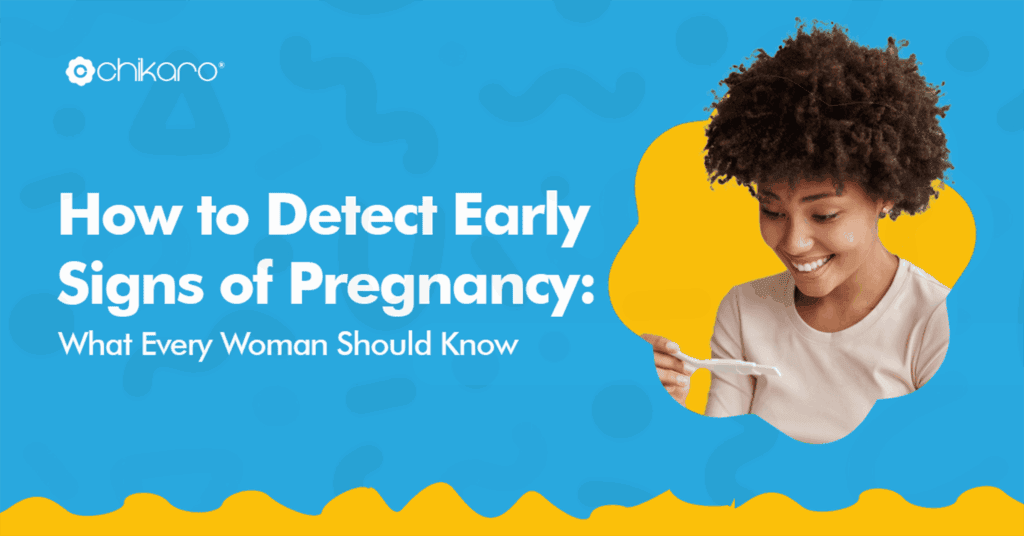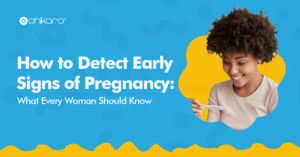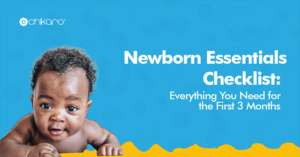From the moment pregnancy begins, your body starts dropping hints. Some are obvious, some are easy to miss. According to a study published in Science Advances, pregnancy affects almost every part of the body, and it can take months to fully recover. But before all that, there are early signs that can clue you in.
If you’re trying to conceive or just have a gut feeling that something is changing, recognizing the early signs of pregnancy can help you prepare physically and emotionally for what’s ahead.
Whether you’re a first-time mum or already have kids, understanding the initial signs can help you take timely action. In this post, we’ll go deep into the most common early pregnancy symptoms, when to take a pregnancy test, and what steps to take once you suspect you’re pregnant.
Common Early Signs of Pregnancy
While every woman’s experience is different, some early signs of pregnancy are more common and consistent across the board. Here are the ones to look out for:

1. Missed Period
One of the earliest and most obvious signs that you might be pregnant is a missed period. If your cycle is usually regular and your period doesn’t show up when it should, that’s often your body’s way of waving a little red flag and saying, “Hey, something’s different!”
Here’s why it happens: During a normal menstrual cycle, your body prepares for a possible pregnancy by building up the lining of the uterus. If no pregnancy occurs, hormone levels drop, and the lining sheds -that’s your period. But if you do get pregnant, your body starts producing a hormone called hCG (the same one pregnancy tests look for), which tells your body to hold on to that lining instead. That’s why your period doesn’t come, your body is now focused on creating a safe space for the baby to grow.
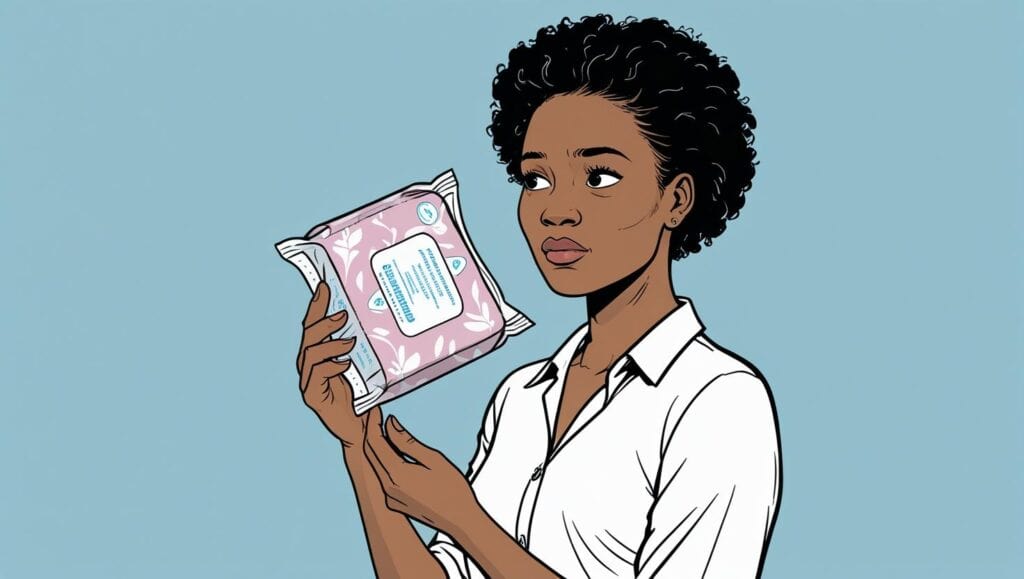
For many women, a missed period is one of the first early signs of pregnancy they notice. But if your cycle is irregular, it might be harder to catch. That’s why paying attention to other early signs of pregnancy, like fatigue or sore breasts, can help you figure out what’s really going on.
So if your period is late and your body feels a little “off,” it might be time to take a pregnancy test and listen to what your body is trying to tell you.
2. Fatigue
Feeling unusually tired all of a sudden? Like you barely did anything but you already need a nap? Fatigue is one of the most common early signs of pregnancy, and it can show up even before you miss your period.
Here’s what’s going on: Once pregnancy begins, your body starts working overtime behind the scenes. One of the first things it does is increase the hormone progesterone. This hormone is important because it helps your uterus get ready to support a growing baby. But progesterone also has a natural calming effect on the body, kind of like a sedative, so it can make you feel sleepy and worn out, even if you’re getting enough rest.

On top of that, your body is using a lot more energy than usual to build the systems that will support pregnancy. Your heart may start pumping more blood, your metabolism may speed up, and your blood sugar levels can fluctuate, all of which can leave you feeling drained.
If you’re suddenly more tired than usual and can’t quite explain why, especially if it’s paired with other early signs of pregnancy like a missed period or sore breasts, it might be time to listen to your body. This kind of deep tiredness is your body’s way of saying, “Something big is happening.”
So while it might just feel like a need for more sleep, unusual fatigue can be one of the earliest and clearest early signs of pregnancy. Don’t ignore it.
3. Tender or Swollen Breasts
One of the first things many women notice in early pregnancy is how different their breasts feel. They might be sore, extra sensitive, tingly, or even feel heavier and fuller than usual. This is one of the early signs of pregnancy that can show up just a week or two after conception.
What causes it? Hormones. Specifically, your estrogen and progesterone levels start rising quickly once pregnancy begins. These hormones signal your body to start preparing for breastfeeding, even before you know you’re pregnant. As a result, blood flow to the breasts increases, and the milk ducts start to grow. That’s why your breasts may feel swollen, sore, or tender to the touch.
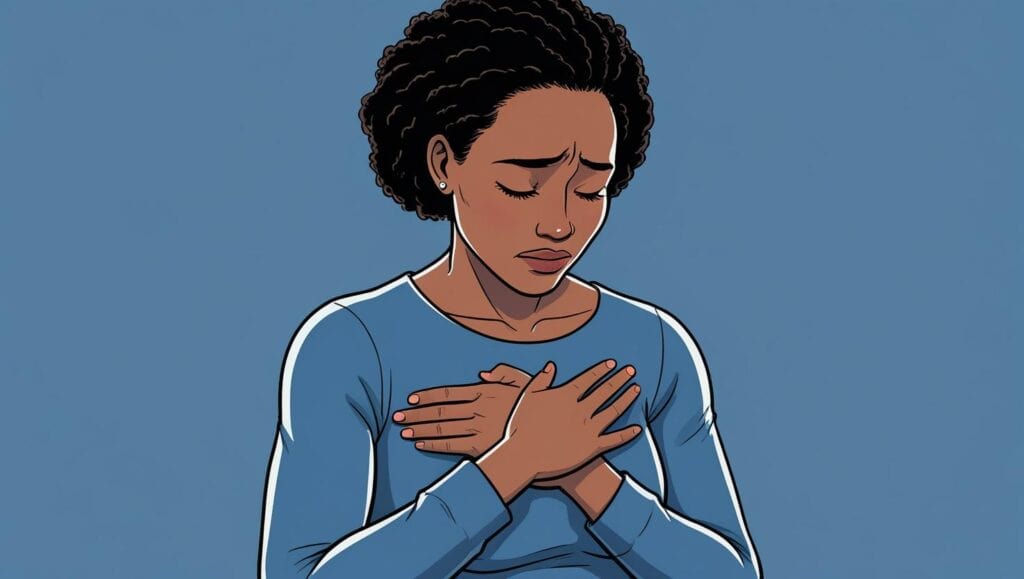
You might notice that wearing a bra feels more uncomfortable than usual or that even slight pressure makes you wince. Some women also notice their nipples becoming more sensitive or their areolas darkening, another clue from your body that something new is happening.
While breast tenderness can also happen before your period, if it feels more intense or lingers longer than usual, especially if it comes with other early signs of pregnancy – it might be time to take a test or speak with your doctor.
So if your chest suddenly feels off and you can’t quite explain why, pay attention. Sore or swollen breasts are not just a random symptom; they’re one of the body’s earliest ways of whispering that a pregnancy might be underway. This makes them a key early sign of pregnancy worth noticing.
4. Nausea and Morning Sickness
You’ve probably heard of “morning sickness,” but the name can be misleading. For many women, nausea during pregnancy isn’t limited to just the mornings. It can happen in the afternoon, evening, or even wake you up in the middle of the night. This is one of the classic early signs of pregnancy and can begin as early as two weeks after conception.
But why does it happen? The main reason is the sudden increase in pregnancy hormones, especially hCG (human chorionic gonadotropin). Right after implantation, your body starts producing hCG at a rapid pace. This hormone plays a vital role in supporting your pregnancy, but it also affects your digestive system and can make your stomach feel unsettled.

Another culprit is estrogen, which also rises quickly in early pregnancy and can heighten your sense of smell. So, everyday scents, like your favorite perfume or the aroma of cooking food might suddenly make you feel sick. Even foods you used to enjoy might now turn your stomach.
While nausea and vomiting can be unpleasant, they are actually signs that your body is doing what it’s supposed to do. For many women, this queasy feeling fades by the second trimester, but for some, it might stick around a bit longer.
If you start feeling unusually nauseous, especially when it’s paired with a missed period or other early signs of pregnancy like fatigue or tender breasts, it could be your body’s way of giving you a gentle heads-up.
So if you’re feeling off and can’t quite figure out why, nausea could be one of the earliest early signs of pregnancy trying to get your attention.
5. Frequent Urination
If you suddenly find yourself making way more trips to the bathroom than usual, even waking up at night just to pee, you might be experiencing one of the early signs of pregnancy. This can start just a couple of weeks after conception and might catch you off guard, especially if you haven’t changed how much water you’re drinking.
So why does this happen? The moment pregnancy begins, your body starts producing more blood and bodily fluids to support the growing baby. This extra fluid gets processed by your kidneys, which are now working extra hard to filter everything. That means more fluid ends up in your bladder and more frequent urges to go.

Another reason is the rise in the hormone hCG (human chorionic gonadotropin), which not only helps maintain the pregnancy but also plays a role in increasing blood flow to your pelvic area. This puts extra pressure on your bladder, even early on.
It might feel like a minor inconvenience, but frequent urination is actually one of the body’s first ways of signaling that changes are happening making it one of the subtle yet important early signs of pregnancy.
So if you’re going to the bathroom a lot more than usual, especially when paired with other early signs like fatigue or breast tenderness, it might be worth paying attention. Your body could be gently letting you know that you’ve just begun a brand new journey.
6. Food Aversions or Cravings
One minute you can’t get enough of jollof rice, and the next minute, the very smell of it makes you want to gag. Or maybe you suddenly need to eat suya with ice cream and it feels like an emergency. These sudden food aversions and cravings are among the more surprising early signs of pregnancy.
But what causes them? Once pregnancy begins, your hormones especially estrogen and hCG start fluctuating quickly. These hormonal changes can mess with your sense of taste and smell, making certain foods you used to love suddenly seem disgusting, while others become irresistible.
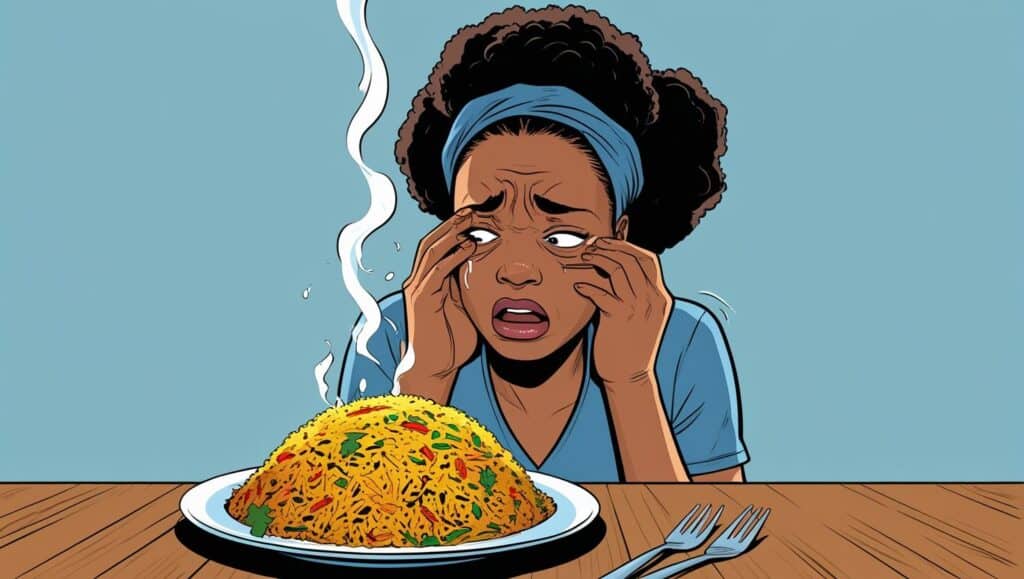
It’s your body’s way of adjusting to the new life growing inside you. Some researchers even believe that food aversions might be your body’s way of protecting you from potentially harmful substances, especially in the early weeks when the baby is most vulnerable. Meanwhile, cravings might signal a need for certain nutrients or just be a side effect of the massive hormonal shifts happening in your system.
Everyone experiences this differently. Some women crave salty foods, others want sweet things, and some just can’t stand the smell of their usual breakfast. If your food preferences start to shift dramatically without any obvious reason, it could be one of the early signs of pregnancy trying to get your attention.
So if you find yourself turning down your favorite meals or dreaming about odd food combinations, don’t be too quick to brush it off. Your taste buds might be reacting to something bigger happening in your body.
7. Mood Swings
One moment you’re laughing, the next you’re tearing up over a TikTok video, and five minutes later, you’re irritated that your spoon made a sound in your cup. If your emotions suddenly feel like a rollercoaster you didn’t sign up for, you might be experiencing one of the early signs of pregnancy.
Here’s why it happens: In early pregnancy, your body is flooded with hormones like estrogen and progesterone. These hormones are essential for supporting the baby and preparing your body for pregnancy, but they also have a big impact on your brain, especially the parts that regulate mood and emotions. As a result, you might feel more sensitive than usual, more anxious, more weepy, or more easily frustrated.

It’s not “just in your head.” These mood changes are real and completely normal. Your body is doing a lot of behind-the-scenes work, and your brain is adjusting to that shift too. On top of the hormones, you might also be dealing with other early signs of pregnancy like fatigue or nausea, which can make emotional changes feel even more intense.
So if you’re feeling a little “off” emotionally, crying over things that normally wouldn’t get to you or snapping at people for no clear reason, your body might be trying to tell you something. These mood swings, especially when paired with other early signs of pregnancy, are often one of the first signals that something new is happening inside.
8. Mild Cramping or Spotting
Noticing a bit of light bleeding or feeling mild cramps around the time your period is due? While it might seem like your period is about to start, it could actually be one of the early signs of pregnancy. This light bleeding is called implantation bleeding, and it happens when a fertilized egg attaches itself to the wall of the uterus.
Here’s what’s going on. After the egg is fertilized, it travels through the fallopian tube and enters the uterus. If everything is on track, the egg will settle into the uterine lining. This process is known as implantation. When the egg attaches to the lining, a small amount of blood may be released, which causes light spotting. You might also feel a bit of cramping during this time.
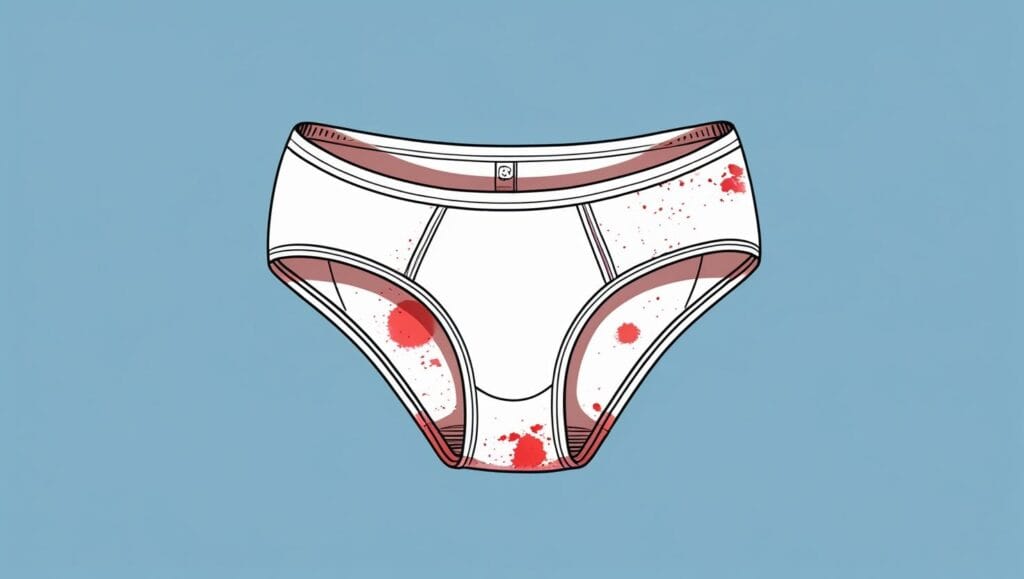
Implantation bleeding usually happens about 6 to 12 days after ovulation. It tends to be much lighter than a regular period. The color may be pink, light brown, or even slightly red, but it doesn’t last long. The cramping is often mild and shorter in duration than your usual menstrual cramps.
Because this can happen right around the time your period is expected, many women mistake it for the start of their cycle. However, if the bleeding is lighter and shorter than your normal period, and if it comes with other early signs of pregnancy such as breast tenderness or fatigue, it may be worth paying attention.
So if you notice a few spots of blood and a bit of cramping that feels different from your usual cycle, this might be one of the first early signs of pregnancy your body is sending your way.
Less Common but Possible Early signs Of Pregnancy
- Metallic taste in the mouth
- Increased sense of smell
- Bloating or constipation
- Dizziness or lightheadedness
These symptoms can also be early signs of pregnancy, but they are often overlooked or mistaken for something else.
When Should You Take a Pregnancy Test?
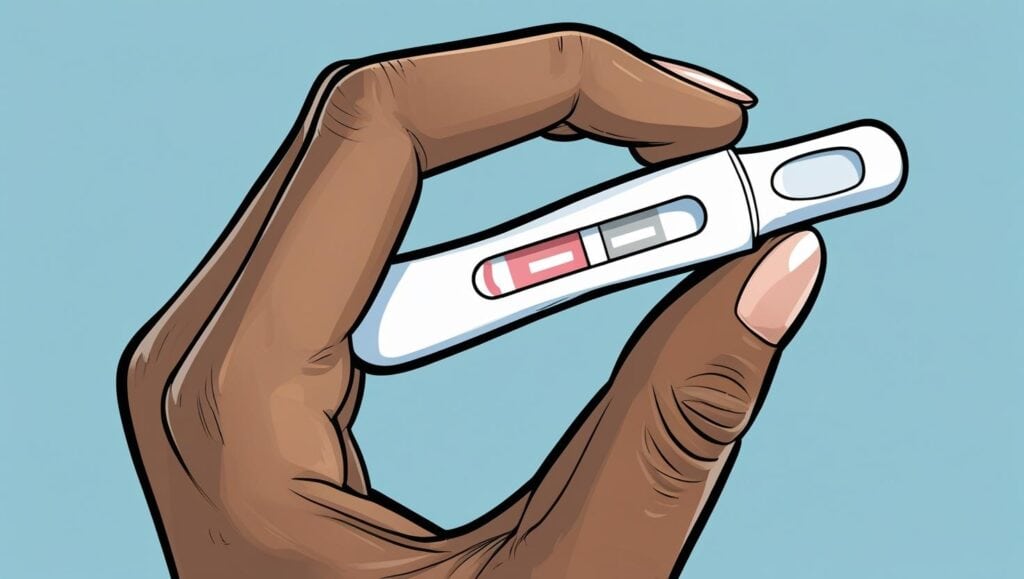
If you think you might be pregnant, the first thing on your mind is probably getting confirmation and getting it fast. But for the most accurate result, it’s best to wait a few days after your missed period before taking a pregnancy test. That’s because home pregnancy tests work by detecting a hormone called hCG (human chorionic gonadotropin), which your body starts producing after implantation. This hormone takes a bit of time to build up to levels that can be picked up by most tests.
To improve your chances of getting a clear result:
- Use your first morning urine, when hCG levels are most concentrated.
- Read the instructions carefully, no matter how familiar you think you are with the process—each test can be slightly different.
- If you’re unsure or get a faint line, consider confirming with a blood test at a clinic. Blood tests can detect lower levels of hCG and give you a more definitive answer.
While a pregnancy test is the surest way to know, many women start noticing early signs of pregnancy even before they miss their period like fatigue, tender breasts, or unusual cravings. If your body’s dropping those little hints, trust your instincts and don’t hesitate to test when the time feels right.
What to Do If You Suspect You’re Pregnant
- Take a home test to confirm.
- Book an appointment with your doctor or OB-GYN.
- Start taking prenatal vitamins with folic acid.
- Adjust your diet to include more fruits, vegetables, and water.
- Avoid alcohol, tobacco, and excessive caffeine.
Trusted Products from Chikaro to Support You in Early Pregnancy
As your body adjusts, the right products can provide much-needed comfort and support. Here are Chikaro’s top recommendations for early pregnancy:
1. Maternity Support Pillow
Reduces back pain and helps improve sleep as your body changes.
2. Maternity Gown
Easy, comfortable and stylish dresses designed for the modern pregnant woman.
3. Pregnancy Support Belt
To help reduce back discomfort during pregnancy
4. Comfortable Maternity Bras
Provide better support for sensitive breasts.
Explore more early pregnancy essentials on Chikaro.com to start your journey on the right foot.
Final Thoughts
Early signs of pregnancy can be confusing, especially because they often mimic PMS symptoms. But if you’re noticing multiple symptoms, it might be time to take that test and begin preparing for a beautiful new chapter.

